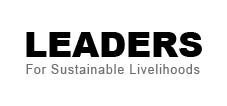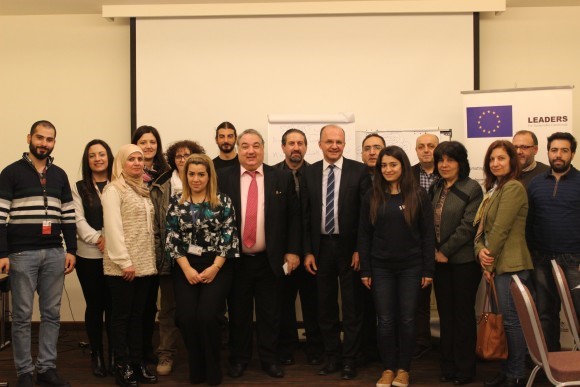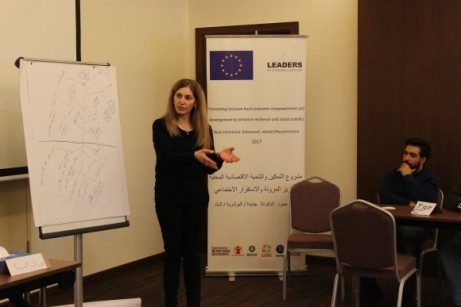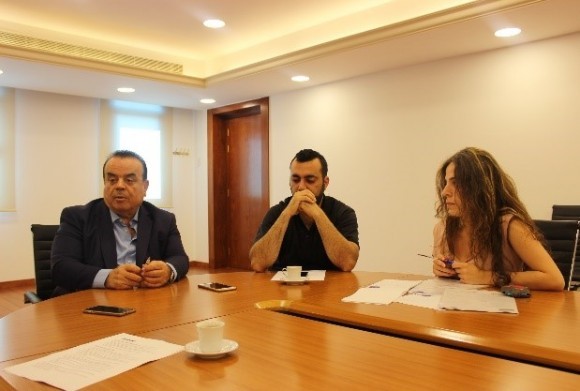
Only seven kilometres away from bustling Beirut, the Jdeideh-Baouchrieh-Sed (JBS) region is home to several industrial giants and dynamic commercial streets. In recent years, JBS has received diminished governmental financial support, which is accentuated by the current economic recession in Lebanon. In addition, environmental issues have been aggravated by unplanned constructions, increased water and air pollution, rising levels of household waste, and decreased green spaces in industrial and commercial zones.
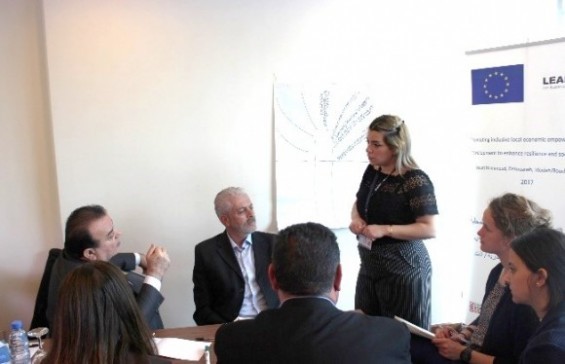
Strategic solutions to improve the health and economy of Jdeideh-Baouchrieh-Sed
Group discussions with various local stakeholders and government officials led to the development of project proposals for JBS, focused mainly on basic service delivery improvements such as waste management, health services, and on economic development opportunities. Through the LEADERS consortium, ACTED will implement a holistic renovation project in selected streets of JBS in collaboration with local partners and stakeholders, with the aim of improving the environmental and economic health of the region as well as fostering social cohesion among communities. The proposed projects will include sidewalk renovations, creating green spaces in urban areas, and installing city bike rails. These renovations will offer the opportunity for events such as street festivals, car-free days, and other cultural activities. These activities will revive the economy at a local level, and foster greater social cohesion among the various communities of JBS and surrounding neighborhoods.
The Municipality of Jdeideh-Baouchrieh-Sed has been an active partner since the beginning of the LEADERS programme. Across the implementation stage, several meetings and field visits have been held with ACTED and the Municipality, allowing collaborative discussion on the key needs and optimal projects within the area.
Social Worker Ms. Daisy Saba stressed that the local community must be engaged in social and economic development projects, stating: “Everyone present during the discussions seemed extremely interested with the topics and solutions brought to the table”.
The Head of JBS Municipality, Mr. Antoine Jbara, also spoke to ACTED about the Municipality’s views of the project, and ACTED’s approach to the problems faced by JBS. He stated: “Cooperation and communication are very important for our Municipality when addressing the issues we face on a daily basis, both of which were beautifully present during ACTED discussions and dialogue tables.”
Regarding the Municipality’s involvement in such initiatives, Mr. Jbara added: “When I began my work here, I noticed a lack of involvement from the Municipality in several aspects of social and economic development. Today, we hope to push the Municipality to contribute to these social and cultural initiatives by turning to the local grassroots organizations and inviting them to collaborate as closely as possible with us in order to create synergy and solidarity in our area. The Municipality of JBS invites everyone to join in this effort and contribute to the improvement and development of JBS”.
Promoting inclusive local economic empowerment and development to enhance resilience and social stability
A local authority point of view
Mukhtar Kamal Abdelmassih of the JBS Municipality is an active part of LEADER’s community working group in his area as part of the holistic “Promoting inclusive local economic empowerment and development to enhance resilience and social stability” project funded by the EU Regional Trust Fund in response to the Syria Crisis – The MADAD Fund. He shared his experience with LEADERS:
“It’s great to see that the JBS Municipality is taking part in such an empowering initiative that presents efficient, effective and simple solutions to a number of health, environmental and social issues.. The platform allowed everyone to discuss the topics that most interest our community which boost both our area’s economy and social cohesion, from sidewalk renovations, to street-markets, and women empowerment activities.”
A private sector point of view
Mr. Bechara Azar is a business owner and consultant in the JBS Municipality and also an active part of LEADER’s community working group in his area. “I’m proud to have been part of a platform where everyone is able to present their ideas and share their concerns about the topics that most interest our community. Initiatives that meet the needs of Jdeideh – Baouchrieh – Sed residents are a priority for everyone involved in these Dialogue Tables. The proposed initiatives are just one example of the many vital projects our area desperately needs, and even though this is the first step of many towards our ultimate goal, we are already making considerable progress towards achieving true development and empowerment in JBS.” Holistic renovation projects proposed by the community will be implemented in selected streets in collaboration with local partners and stakeholders. The proposed projects will include sidewalk renovations, increased green spaces in urban areas, and installation of city bike rails.
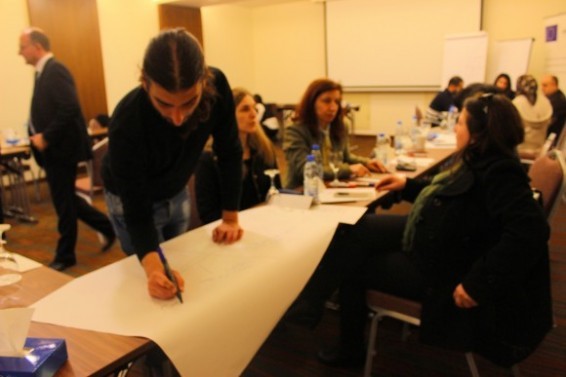
LEADERS for Change
The above programme (“Promoting Inclusive Local Economic Empowerment and Development to Enhance Resilience and Social Stability”) is funded by the EU Regional Trust Fund in Response to the Syrian Crisis (MADAD Fund). Through this programme, the MADAD Fund and the LEADERS Consortium members work to support local initiatives for socio-economic development in Lebanon. The MADAD Fund was established in December 2014 to enable a more coherent and integrated EU response to the Syria crisis. It primarily addresses longer term resilience and early recovery needs (economic, educational, social and psycho-social) of Syrian refugees in neighbouring countries such as Jordan, Lebanon, Turkey and Iraq, and supports overstretched host communities and their administrations.
